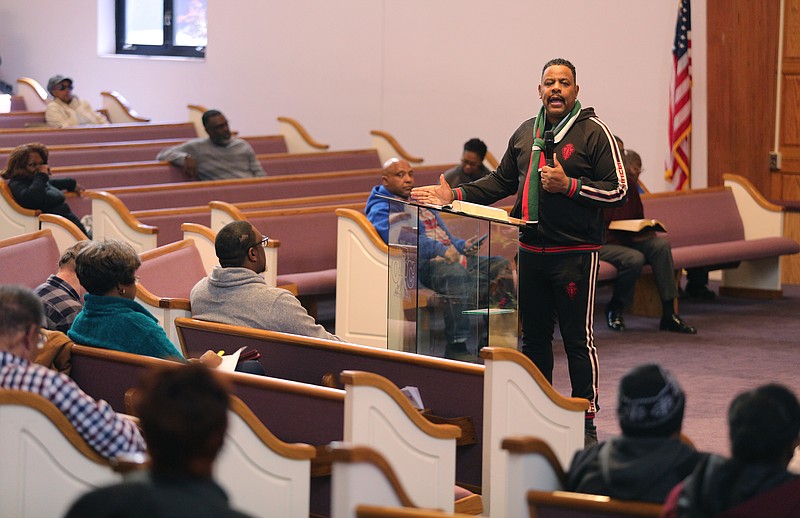Are you now or have you ever been a Christian nationalist?
Do you attend a church that displays an American flag in its worship space? You might be a Christian nationalist.
Do you attend a church that includes a patriotic song in services surrounding holidays like the Fourth of July? You might be a Christian nationalist.
Do you attend a church where your country and its leaders - even, gasp, the president - are prayed for regularly? You might be a Christian nationalist.
If you're a Christian nationalist, you must also be a white supremacist and a racist, which means you're the worst kind of human being ever to crawl on the earth.
Not that we're judging, of course.
How did we get here?
We got here because today we carelessly throw around words that become associated with other words that carelessly become associated with people and movements, and pretty soon following biblical directives makes you the lowest of the low.
The Baptist Joint Committee, which describes itself as an organization that brings "our uniquely Baptist perspective of 'soul freedom' to protecting religious liberty for all and defending the separation of church and state," recently issued a statement on "Christians Against Christian Nationalism" and invited people to sign it.
The organization, it says, is "concerned about a persistent threat to both our religious communities and our democracy - Christian nationalism."
Christian nationalism, it says, "seeks to merge Christian and American identities, distorting both the Christian faith and America's constitutional democracy. Christian nationalism demands Christianity be privileged by the State and implies that to be a good American, one must be Christian. It often overlaps with and provides cover for white supremacy and racial subjugation."
We would like such a "persistent threat" to be quantified. Who is doing this? Who is calling for Christianity to be a state religion, and who is saying the only good Americans are Christians? And even if they did - and they shouldn't - does that make them a white supremacist or a racist?
We can't get away from the fact the United States has been a majority Christian nation since its founding. But, for goodness sake, its forefathers came here to practice the religion of their choosing. So that's why the country always has backed the practice of a diversity of faiths, in spite of its majority of Christians.
We also can't get away from the fact the Christian Bible exhorts its followers to pray for the place in which they live.
"Also, see the peace and prosperity of the city to which I have carried you into exile," says Jeremiah 29:7. "Pray to the Lord for it, because if it prospers, you too will prosper."
The same Bible also says we must pray for our leaders (no matter what we may think of them or what names we may ascribe to them).
"I urge, then," says 1 Timothy 2:1-2, "first of all, that petitions, prayers, intercession and thanksgiving be made for all people - for kings and those in authority, that we may live peaceful and quiet lives in all godliness and holiness."
Most of the tenets in the Baptist Joint Committee's "Christians Against Christian Nationalism" statement are fairly innocuous and dovetail with what is historically taught about the country and in most churches.
But its last two statements make great leaps without defining terms, thus creating dangerous assumptions.
The first, "Conflating religious authority with political authority is idolatrous and often leads to oppression of minority and other marginalized groups as well as the spiritual impoverishment of religion," doesn't say how one combines religious and political authorities in order to oppress minorities. Would praying for the country's leaders do it? What about singing "America the Beautiful" in a church service in early July?
The second, "We must stand up to and speak out against Christian nationalism, especially when it inspires acts of violence and intimidation - including vandalism, bomb threats, arson, hate crimes, and attacks on houses of worship - against religious communities at home and abroad," doesn't say how combining religious and political authorities leads to violence. It also intimates that such violence is not something Christians would normally decry. But Christians always must speak out against violence. Psalm 11:5, for example, says, "The Lord examines the righteous, but the wicked, those who love violence, he hates with a passion."
In America today, too many people who claim to have a Christian faith have chosen to write their own script: It's OK to hate the president but not the lawbreaker. Violence is OK for those with whom we disagree but not against those we believe are right. It's OK to speak out for children whose parents have brought them to the country illegally but not for the unborn.
We agree with much that is in the "Christians Against Christian Nationalism" statement, but we're not convinced part of it is not as political as the political and religion conflation it suggests.
